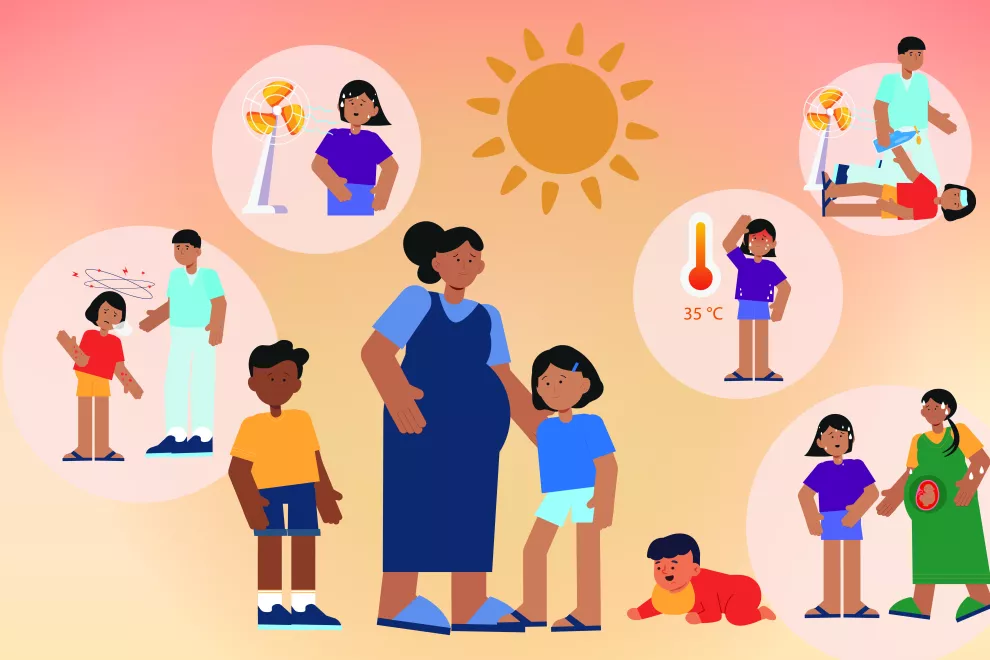“Carbs” is a widely discussed topic, especially in the field of weight loss due to the Atkins, Dukan, South Beach and Ketogenic Diets diets in particular.
Many people are confused about the “carbs are bad” and how important they are for our health, including keeping our carbohydrates healthy.
The big group of Carbohydrates and not all carbs are equal. It is essential for our diet to be of form, quality and amount of carbohydrate.
Fiber, for example in grains and starchy carbs, is good for our health, there is strong evidence.
What are carbs?
Carbohydrates are 1 in 3 macronutrients present in food (nutrients that are a major part of our diet). The remainder are protein and fat.
No food contains only 1 ingredient, and most of them are in different amounts a mixture of carbohydrates, fats, and proteins.
The food contains three kinds of carbohydrates: fructose, starch, and fiber.
Sugar
Natural carbohydrates are related to sweets, which the majority of adults and adolescents in the UK consume too much.
Sweet snacks or beverages, for example, cookies, candy, flavor yogurts, breakfast cereals, and fizzy drinks are included in these items.
Sugars are naturally found in sugar, syrup (such as coffee, agave, and golden syrup), nectars (such as blossom) and unsweetened juices of the plants, food joys, and smoothies.
Starch
Starch can be contained in plant foods. The slow and steady release of energy throughout the day is provided by starchy foods, such as bread, rice, potatoes, and pasta.
Fiber
Fiber is embedded in plants ‘ cell walls with milk. Fiber products are perfect for fruit and vegetables, wholegrain flour, pasta for whole wheat and legumes (beans and lentils).
How much carbohydrate should I eat?
The Eatwell Guide shows that the government’s healthy eating advice advises that just more than a third of your diet should be made from stuffy, such as onions, pizza, rice, and pasta.
So more than half of the daily intake of calories will derive in starchy food, fruit, and vegetables.
Why are we having carbohydrate?
For a number of reasons, carbohydrates are important for your health.
The main energy supply for your body in a safe, balanced diet should include natural carbohydrates.
Upon absorption into your blood, they are broken down into glucose (sugar). With the help of insulin, the glucose reaches the cells of the body.
Glucose is used to boost the vitality through the muscles, irrespective of whether you are moving or breathing.
Glycogen, present in the liver and tissues, can be transformed into wasted glucose.
It is converted into fat for long-term energy storage if more glucose is absorbed than glycogen can be processed.
Starchy fiber-intensive carbohydrates pump glucose into the bloodless gradually than sugars.
Disease risk
A safe, balanced diet is an important part of nutrition. It can promote good bowel hygiene, reduce the risk of constipation and lower cholesterol levels by some kinds of fiber.
Research suggests that fiber-high diets are related to a reduced risk of cardiovascular disease, type 2 diabetes and bowels.
Many do not get ample fiber. In the UK, most people receive about 19 g of fiber a day on average. The average daily intake of adults is 30 g.
Depending on your age, the fiber intake recommended for children will vary from 15 g to 30 g.
Calorie intake
Carbon hydrocarbons produce fewer gram calories than carbohydrates, 4 calories (4kcal) for carbs, and 9 calories (9kcal) for fats. Therefore, starchy foods can be a strong fiber source, while maintaining a healthy weight can be of benefit.
In substituting high-fiber starch food for fatty, such as foods and drinks, you will most likely reduce your diet by reducing the number of calories. Fiber-rich foods often add bulk to your meal and you feel comfortable.
Should I cut out carbohydrates?
It would be hard to remove carbs from your diet while we could live without sugar.
The body’s main energy supply is carbohydrates. The body uses protein and fat for nutrition in its absence.
Fibers, which are critical for long-term health, may also be challenging to get.
A key source of nutrients such as calcium, iron and B vitamins is also a good source of carbohydrates, including higher fiber starchy food and beans, bananas, and legumes.
Long-term carbohydrates can lead to a significant reduction in your diet that could lead to health problems. you may not get enough nutrients.
Replacing carbohydrates with fats and higher fat protein sources may increase your saturated fat intake, which can increase your blood’s cholesterol–which is a risk for heart disease.
The body decays the stored fat to turn it into energy when you are low on glucose. This induces ketones to build up in the blood which contributes to ketosis.
This can make people feel tired, sick, dehydrated, dizzy and irritable.
Try to limit your food intake, and include more balanced fuels with carbohydrates such as whole grains, onions, tomatoes, fruit and legumes in your diet.
Diabetes and low-carb diets
It has been shown that low-carb diets for many people with type 2 diabetes are safe and effective in the short term. We lead to weight loss, diabetes management, and injury risk reduction.
Before following a low carbohydrate diet, you can consult with a GP or the care team as this is not ideal for everyone with type 2 diabetes. The healthcare team will instruct you on how many carbohydrates to take. Diabetes UK provides on its website a schedule for seven days ‘ low-carb meals.
It is also important to be aware that low-carb diet symptoms, such as low blood sugar (hypoglycemia), are likely side effects.
There is no proof that a low-carb diet is longer-term effective than other food forms such as a reduced-calorie diet for people with diabetes type 2.
There is no strong indication at present that low-carb diets for people with type 1 diabetes are successful.
For children with diabetes, low-carb diets are not advised as they may influence development.
Can the energy supply protein and fat?
Although carbohydrate, fat, and protein are all energy sources in your diet, the amount of energy each gives varies:
- carbohydrate provides around 4 calories (4 kcal) per g
- protein provides 4 kcal (4 kcal) per g
- fat gives 9 calories (9 kcal) per g in your carbohydrates in your diet;
You’re going to gain weight because you consume more calories than you burn.
Cutting sugars or fat doesn’t need to reduce calories because you supplement them with other products that have the same amount of calories.
Were carbs filler rather than protein?
Around the same amount of calories per gram of carbohydrates and protein.
Yet many aspects help us feel complete, like the type, variety, nutritional and environmental influences we eat, such as food sizes and availability.
The sense of fullness will differ between people. Nutrition-rich foods will allow you to feel full and you should have a safe, balanced diet with certain beans, peas, seafood, poultry, meat, and other nutrition.
Nonetheless, we should not consume too much food rich in protein and starch. Around one-third of the food we eat should be starchy items, and more fruit and vegetables should be consumed by all of us.
What should I do with the carbohydrates?
British diet and exercise survey data shows that most of us will consume nutritious and starchy foods and fewer cookies, chocolates, chips, pastries, desserts and soft drinks that include added sugar. This report aims at food consumption in the UK.
Fruits, vegetables, pulses and starchy (especially higher varieties of fiber) provide a broader range of health-producing nutrients (for example vitamins and minerals).
The fiber in these foodstuffs will keep your intestine safe and bring weight to your food to make you feel comfortable.
Do you get fat from carbohydrates?
When you consume too much, some diet will raise the weight. If you eat high in fat, or high in carbohydrates, you will probably gain weight if you frequently consume more energy than your body uses.
Carbohydrate produces fewer fat calories than a gram. All kinds of starchy foods are healthy fiber sources. High fiber foods add bulk to your meal and make you feel relaxed.
Nevertheless, sugar-intensive diets are often high in calories, which can lead to the excessive weight of these products.
Can weight loss cutting out wheat?
Some people call the main explanation for their weight gain bread and other wheat-based food.
The commodities that contain wheat include bread, pasta and pizza, cereals, cookies, and sauces, as well as seed goods.
But there is insufficient evidence that wheat-containing products are more likely than other foodstuffs to raise the weight.
There is little proof that taking wheat and other grains out of your diet can help you’ll stay safer unless you have a confirmed illness, such as wheat allergy, food deficiency, and coeliac disease.
Grains are an important part of a healthy, balanced diet, particularly whole grains.
Wholegrain, wholemeal and brown breads provide us with nutrition and antioxidants like B, vitamin E, fibers, and a wide variety of minerals.
There are also a number of vitamin and mineral ingredients in white bread, but there is less fiber than wholegrain, wholemeal and brown bread.
Search for higher fiber options if you prefer white bread. Naturally, the grains are low in fat too.
How do carbs play an important role in exercise?
Carbohydrates, fat, and protein also provide strength, but the main source of food for your muscles is Carbohydrates.
Muscles have an insufficient supply of carbohydrates (glycogen) and must be periodically replaced.
A low carbohydrate diet will contribute to energy shortage during exercise, early tiredness, and delayed recovery.
When will carbohydrates be the best time?
There is little scientific proof that it is better one time.
All your meals should be focused on starchy carbon products and you should select higher wholegrain fiber varieties if you can.


